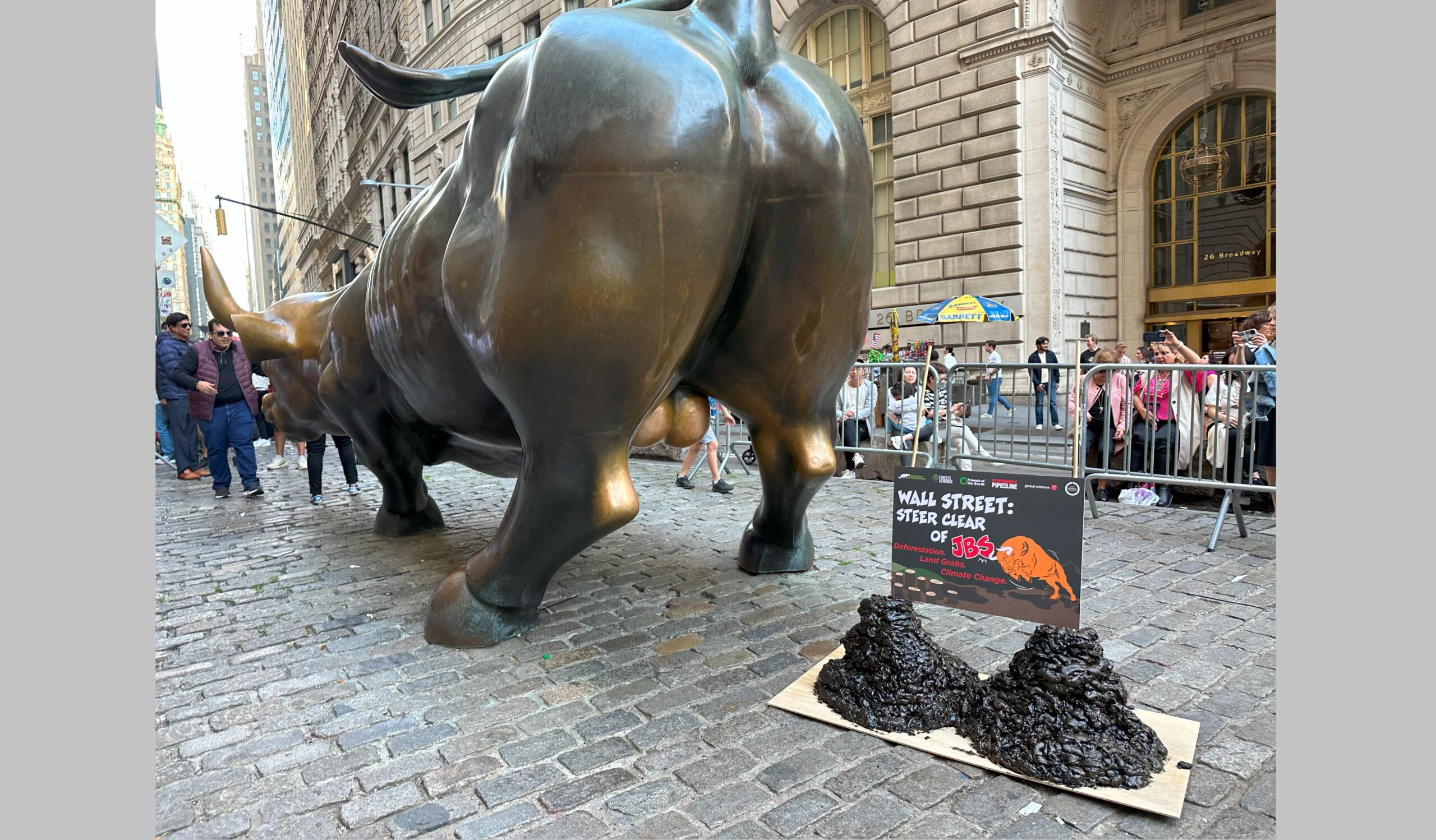Actualités
JBS S.A. Dual Listing on New York Stock Exchange: A collective warning of risks to people, planet and investors

Originally posted by Global Witness
The world’s largest meat company, JBS S.A., is planning to list shares on the New York Stock Exchange, which would give the company access to more money to expand while handing over almost complete control to the notoriously corrupt Batista family.
Along with 15 other civil society organisations, we have issued a briefing to more than 200 investors warning them about the risk to the climate, people, and investors associated with the company and its operations.
In July 2023, JBS S.A., announced a plan to restart its decade-long attempt to list shares on the New York Stock Exchange via a dual listing under a new Dutch parent company “JBS N.V.”.
But JBS has a well-documented track record of its involvement in deforestation, human rights abuses, and land grabs against Indigenous peoples.
While the company is already publicly traded on the São Paulo Stock Exchange, the ability to sell its shares in New York could open up deep pockets of cash for JBS to expand, risking yet more environmental damage.
The briefing has been issued to warn the global financial community about the significant risk to the climate, people, and investors associated with JBS and its operations.
The group’s core concern relates to JBS’s proposed corporate restructure as part of the dual listing, which would hand 85% of voting rights to the Batista family according to the company’s filing to the US Securities and Exchange Commission – a major increase on their current 48.8% voting entitlement as of August 2023.
The briefing warns that a Batista family power grab is a major risk to both investors and the planet, as it would majorly reduce the opportunity for minority shareholders to steer the company on issues like human rights protections or environmental impact.
Key recommendations
The briefing urges financial service providers including lenders and investors to:
- Suspend any support for and investment in JBS or its subsidiaries until they provide a credible plan to address their emissions and risk of deforestation and human rights abuses.
- Raise public awareness of issues with the deal and JBS’s environmental and social record
- Identify and provide any necessary redress and remedy to communities affected by the financing of JBS’s operations
Other key risks for investors raised in the briefing include:
- JBS will need to rapidly clean up its supply chain and put in place better traceability systems to comply with incoming EU and UK deforestation laws, or its products may become illegal in those markets.
- JBS plans to establish a new shell parent company in the Netherlands, a well-known tax haven, just at the time when the Dutch government says it is cracking down this corporate model.
- JBS – which has vast greenhouse gas emissions – faces potential litigation risks from setting up in the Netherlands, which is described by experts as an emerging “front-runner” jurisdiction for climate-related lawsuits.
- That the company is already on the hook for $1.7 billion in potential fines and penalties from ongoing legal proceedings and complaints.
- That JBS’ future ability to access credit may be affected by financial due diligence laws recently contemplated by the EU and UK. Both jurisdictions are conducting legal reviews to see if existing laws are strong enough to prevent the financing of companies involved in deforestation.